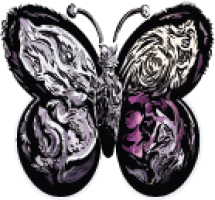Why Psychotraumatology: A Journey of Transformation and Healing
In the ancient Greek myth of Psyche, we find a powerful narrative that resonates deeply with Psychotraumatology. This myth, which tells the story of a mortal woman named Psyche and her trials and tribulations, offers profound insights into the human capacity for transformation and healing in the face of adversity.


The Quest for Self-Discovery:
Psyche’s trials, which included tasks that seemed impossible, mirror the challenges faced by those on the path to healing from trauma. Psychotrauma survivors embark on a quest for self-discovery, seeking to understand the depths of their own psyche and confront the daunting tasks of processing their traumatic experiences.

The Light of Self-Reflection:
One of the key elements in Psyche’s story is her encounter with a mirror. This mirrors the introspection and self-reflection that are essential components of Trauma therapy. Trauma survivors often need to confront their own reflections, their past experiences, and their emotional wounds to embark on a path of healing.

The Journey Through Darkness: Psyche’s journey began in darkness when she was cast adrift by forces beyond her control. Similarly, individuals who have experienced trauma often find themselves in a dark and unfamiliar emotional landscape. The trauma they endure can feel like a descent into the unknown, where fear and pain reign. transformation and healing in the face of adversity.

The Power of Love and Resilience:
The love story between Psyche and Eros (Cupid) is emblematic of the healing journey in psychotraumatology. Love, in this context, represents the innate human capacity for resilience and the transformative power of relationships and support systems. Just as Eros’ love for Psyche brought her back from the brink of despair, the support and care of therapists, friends, and loved ones can play a crucial role in a trauma survivor’s recovery.

Emerging Transformed: At the heart of the Psyche myth is the theme of transformation. Psyche’s journey through darkness, her resilience, and her capacity to overcome seemingly insurmountable challenges ultimately lead to her transformation into a goddess.
Psyche is often depicted as a butterfly or a moth, symbolizing transformation and rebirth.
Similarly, individuals who engage in psychotrauma therapy often emerge from their traumatic experiences transformed, with a deeper understanding of themselves and the world around them.
Enlightening
At the heart of this symbolism lies the oil lamp held by Psyche. The lamp, often seen as a source of light and knowledge, represents the pursuit of understanding and insight. In psychotraumatology, the journey towards healing and recovery is illuminated by knowledge to mental health professionals
Trauma Informed Therapy is focused on Alleviating Human Suffering in the here and now, giving trauma survivors a better quality of life, not focused in the past but instead on their present, with compassion, curiosity, and consciousness.
This symbol encapsulates the essence of hope and resilience. It signifies that, despite the profound darkness of trauma, there is a guiding light that can lead individuals toward recovery. The oil lamp represents the hope that, with the right guidance and support, survivors can find their way out of the darkness and into a brighter, healthier future.
Choosing the character of Psyche, kneeling and holding an oil lamp, as a symbol of psychotraumatology, we honor the journey of healing and transformation that trauma survivors undertake. It serves as a beacon of hope, reminding us that even in the most challenging circumstances, the light of understanding and resilience can guide us toward wholeness and recovery.
This symbol encapsulates the essence of Psychotraumatology: Alleviate Human Suffering through the unwavering belief in the human capacity to heal and thrive, even in the face of profound adversity.
Our Values
Here and Now
Help the client in their present
Curiosity
Research curiosity, learning curiosity,
Compassion
At the center of everything we do
Conciusness
The outcome of consciousness as therapeutic tools
What is Trauma
Psychotraumatology is an interdisciplinary domain that delves into the bio-neuro-psychological ramifications of trauma on individuals
The core focus of psychotraumatology is on treating the effects of trauma.
These bring us the question, What is Trauma
Mainly, Trauma must not be conceptualized as an event (terrorism, war, accident, sexual abuse) even if these events have the potential or implicitly create traumatic memories.
We define trauma in four domains:
© 2024 All Rights Reserved.

